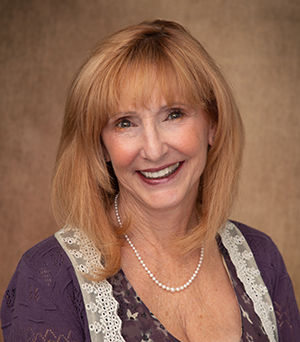When Becky Fitzgerald talks about her career in nursing and teaching, two themes emerge: reaching out to underserved populations, and working to bolster hope in those who find theirs tested.

Her research to complete an Educational Doctorate in Distance Education bring these threads together in a project that asks Lethbridge College international students whose first language is not English how their hope is affected by online learning.
“What do students see is critical to encouraging their hope and their ability to generate agency and pathway thinking to achieve their goals?” she asks. “And what do they see as barriers to hope? What role does hope play in international students’ ability to engage, adapt and succeed?”
Hope has three components, according to hope theorist Richard Snyder: a realistically possible and personally significant goal (wanting to graduate and get a good job); pathways (registering, studying hard, and finding support) and agency (being motivated).
Fitzgerald, who took on the role as interim associate dean of in the Centre for Health and Wellness overseeing the Allied Health programs this summer, says her research questions were formulated before the pandemic pushed instruction online. The timing means she can learn from students here at Lethbridge College, rather than casting a net for volunteers at Athabasca University, an online university where she’s pursuing her doctorate.
“It’s going to let me understand our college, our community and our community of international students,” she says.
Beyond psychological benefits of hope – less anxiety, more motivation, higher energy and engagement – students with high hope have higher academic performance and achieve success beyond expectation based on their intelligence.
So far, Fitzgerald has been contacted by eight students who meet her research criteria – English is not their first language and they’re taking at least one online course. She’s hoping for seven more to volunteer. Students can sign up any time before mid-November and can express interest by emailing her.
Her data collection involves both one-on-one interviews with each student and photovoice (use of photos to express viewpoints) – students will take a photo to help tell their story.
“It’s not an onerous thing,” she says. “Students take a photograph and tell a story about their photograph in a follow-up interview. They say a photograph is worth a thousand words. I want the students to take pictures of what gets in the way of their hope and what helps their hope.
“I want their voices to be heard. I think that's at the heart of who I am. People have to have a voice.”
The connection between hope and positive outcomes began for Fitzgerald during her master’s research when she focused on how encouraging hope in patients given a critical or terminal diagnosis could improve their lives.
“If we encourage their hope and find some strategies to move them along those pathways with motivation and encourage their hope,” she explains, “then those people are going to do well with their diagnosis.”
Fitzgerald joined Lethbridge College as faculty in the Bachelor of Nursing program in 2013 after a nursing career that ran the gamut from critical, emergency and recovery care, to nursing in the far north, and to working for seven years with Medicos en Accion, a nonprofit society that delivered medical and surgical care in Guatemala. There, she and her colleagues embodied hope, arriving for two-week stints to provide all manner of care from hearing aids to surgery. She spent the rest of the year fundraising and organizing every detail for the trip.
“People would travel from the hills with their children and their food on their backs,” she says. “It always chokes me up. On the first day, when we would walk in, they’d be sitting in the courtyard waiting for us, and they would just clap.
“We had one little girl, and we gave her a hearing aid so she could go to school,” Fitzgerald recalls. “Having a hearing aid allowed her to attend school and then go on to attend university. This one life saving gift of hearing helped to improve the socio-economic status of the whole family.”
Promoting hope can promote dramatic outcomes for academics, and Fitzgerald hopes our international students’ voices will help to identify strategies and initiatives that could influence curriculum design, as well as higher educational programs, and policies in ways that could benefit all students.
“Hope can be encouraged. It can be influenced,” she says. “I’m hoping I can influence how our institutions interact and support international students’ hope.”